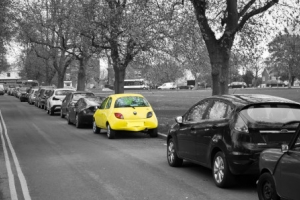New Hampshire’s Lemon Law

New Hampshire’s Lemon Law covers vehicles that have a substantial defect, covered by the manufacturer’s warranty, which the dealer is not able to fix.
If state officials agree your vehicle is a lemon, you are entitled to a payment or vehicle of equal value from the dealer.
How does NH define a lemon?
New Hampshire’s Lemon Law generally applies to new cars, motorcycles, four-wheelers, and snowmobiles. However, a used vehicle may qualify as a lemon if it is bought with relatively low mileage and is still covered by manufacturer warranty.
To qualify as a lemon in NH, the following must be true:
- The use, value, or safety of the vehicle is substantially impaired by a defect
- The defect is covered by the manufacturer’s warranty
- The defect is not caused by an accident, neglect, or alteration by the driver
- The dealer has tried to repair the defect at least three times, and failed
There are some exceptions to the last requirements, particularly if the defect is a serious safety hazard or the vehicle is out of service for 30 or more days.
What should I do if I think I have a lemon?
The New Hampshire Motor Vehicle Arbitration Board (MVAB), a five-person panel of consumers, auto dealers and certified mechanics, is responsible for deciding if a car is a lemon.
There is a $50 filing fee for a consumer to go through the MVAB process.
The MVAB can require a dealer to make a payment to the consumer and/or replace the defective vehicle. That payment may include attorney fees.
Click here for more information from the Department of Motor Vehicles on how to file with the MVAB
What if the law doesn’t say I have a lemon?
If your car does not fall under the legal definition of a lemon - for example if the defect does not fall under a manufacturer's warranty - you can still request help from the Better Business Bureau or the New Hampshire Consumer Protection Bureau.
Does NH need a stronger lemon law?
Some states, including Massachusetts, also cover used cars under a Lemon Law. Supporters argue these laws are necessary to protect low income citizens, who are less likely to be able to afford new cars. Opponents argue laws against fraud and deceptive business practices are more appropriate for regulating used cars, because dealers cannot know everything a previous owner did to a car.
Learn about other issues related to automobiles and road safety in NH
Do you have an opinion on New Hampshire’s Lemon Law? Share your thoughts in the comments below.











Comments
Login or register to post comments